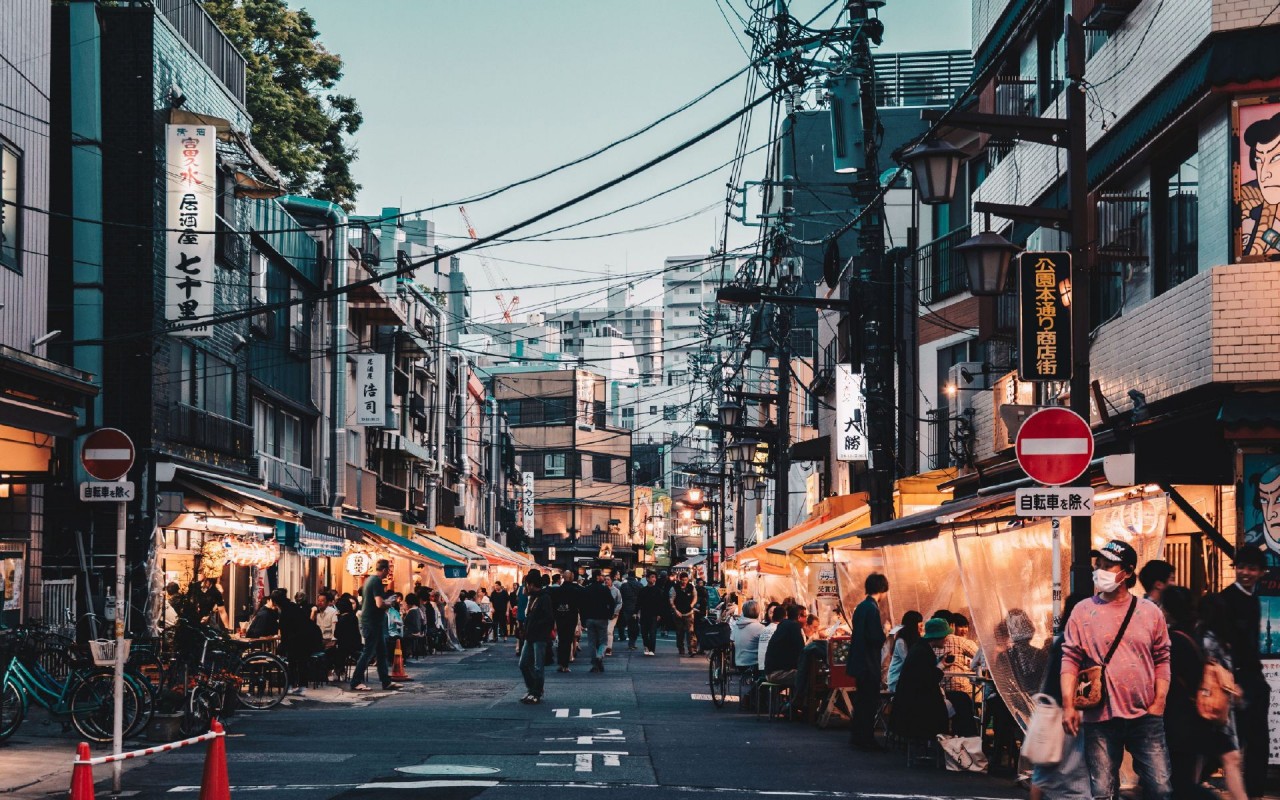
◆Make up stories about Japanese people and tell Chinese people’s minds.
Produced by Zhengjie Bureau
In the 1990s, Japan was ruthless and drove 500,000 blacks out of the country…
Have you read this story?
Especially the recent protests by black Americans have made this rumor fire again.
What emotions of the Chinese people are hidden in this rumor?
01
A rumor
This rumor is like this.
In the early 1980s, Japan’s economy took off, and the home appliance, electronics, and automobile industries flourished. Many black people illegally emigrated to Japan through trade.
In addition to the second generation of blacks, in the 1990s, there were as many as 500,000 blacks living in Japan illegally.
Japan is the second largest economy in the world, and living conditions are certainly not comparable to Africa. After the blacks came to Japan, they could not leave, which seriously affected Japanese social governance.
The repatriation of 500,000 blacks is not a trivial matter.
How does the Japanese government deal with this difficult problem?
At that time, Japan and Mozambique in Africa established diplomatic relations.
The Japanese government pledged to the Mozambican government to provide tens of millions of dollars in free aid. In return, the Mozambican government agreed to accept 500,000 illegal blacks in Japan.
The Japanese government arrested 500,000 blacks within half a year, and then escorted them to Mozambique on 25 freighters.
In order to reduce resistance, the Japanese government also pays $1,000 for each repatriated black to settle down.
So, in just one year, the Japanese government successfully solved the problem of 500,000 blacks.
Why is this a rumor?
One, no clear source and source can be found.
If this matter is true, it is definitely a major international event and it should be written in great detail.
But on the Internet, except for the saliva articles similar to the above, no clear source and source can be found. The authenticity is questionable.
Secondly, the approach cannot withstand scrutiny.
From a large point of view, Japan’s approach does not conform to international law. Regarding the repatriation of illegal immigrants, the most basic international law practice is to repatriate to the country of origin.
Japan sent all 500,000 blacks to Mozambique, which is obviously in violation of international law.
From a small point of view, this approach in Japan is impractical. Within a year, arrest 500,000 blacks and escort them to Mozambique. This cannot be done in a few words.

Schematic diagram of Mozambique
Besides, delivery to Mozambique is impossible. After declaring independence in 1975, Mozambique was plunged into civil war, and peace was not restored until 1992.
Japan cannot send 500,000 blacks to a war-torn place.
The third and most critical flaw is that Japan cannot have 500,000 blacks.
Data from the Ministry of Justice of Japan and the Japanese National Police Agency show that the highest number of foreigners residing in Japan illegally occurred in 1993, with a total of 298,646.
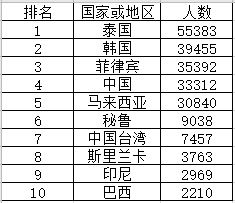
19In 1993, the country or region where foreigners residing illegally in Japan belonged
None of the top ten countries or regions are African countries. Even if the remaining illegal residents are all blacks, the maximum number is 78,827.
In the 1980s, most Koreans lived in Japan, with a total population of only 670,000. It can be imagined what is the concept of 500,000 blacks living in Japan illegally.
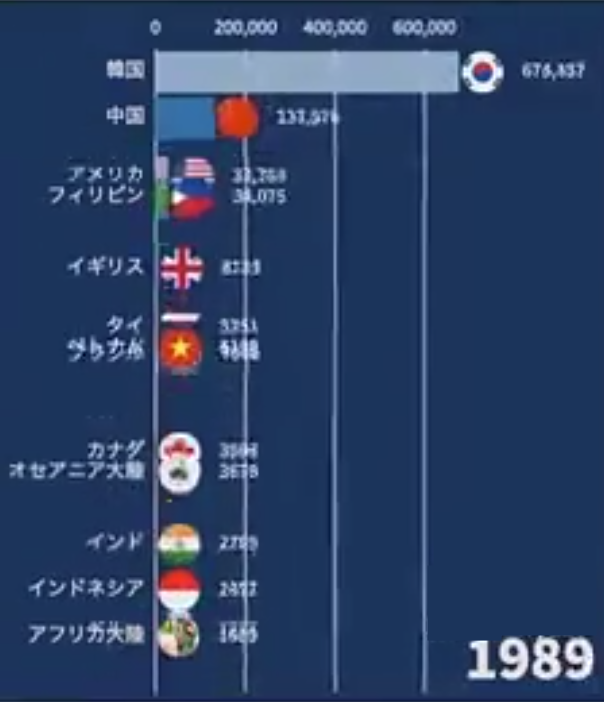
In 1989, the nationality of foreigners residing in Japan
Japan is an island country, which does not border any country, so entry and exit management is relatively simple. It is not so easy to smuggle 500,000 blacks.
Take a step back and say that even if a hundred secrets are sparse, black people illegally enter the country. But with the color of a black, it is of course impossible to hide in Japan.
So, “Japan drove out half a million blacks” is a rumor.
02
Exclusive Japan
The rumors of “Japan drove out half a million blacks” are not groundless.
An important reason is that Japan is really not friendly to foreigners.
In 2005, experts from the United Nations Human Rights Commission visited Japan to investigate whether the human rights of foreign workers have been violated.
Nine days later, the UN experts concluded:
Serious discrimination against some foreigners in Japan is reflected in economic, cultural and other aspects, which can be described as “deep-rooted”.
In 2017, the Ministry of Foreign Affairs of Japan itself conducted a questionnaire survey on the status quo of discrimination against foreigners living in Japan.
This questionnaire survey for 18,500 foreigners (over 18 years old and living in Japan for more than 3 months) nationwide supports the opinions of UN experts.
About “Have heard or seen discriminatory speech, hate speech”One item, 76.2% of the respondents said that they have heard or seen it on the Internet or in the media.
With regard to the item of “house hunting”, 41% of house seekers have been refused admission because they did not have a Japanese guarantor, and 39% of house seekers were refused admission because they were foreigners. 27% of housing seekers gave up seeing the words “No Foreigners” written on the property introduction.

Survey results
As for “finding a job or a job,” 25% of job applicants were rejected because they were foreigners, and 19.6% of the respondents were engaged in the same job but the salary was lower than that of Japanese.
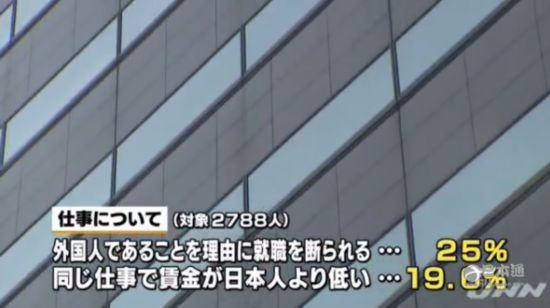
Survey results
I am usually discriminated against. If you encounter diplomatic disputes that add fuel to the fire, foreigners in Japan will be even more unlucky.
In 2012, when South Korean President Lee Myung-bak visited Dokdo to declare sovereignty, relations between Japan and South Korea suddenly became tense. Japanese ultra-nationalist groups slam the Koreans as “cockroaches” on the streets of Tokyo.
In 2013, Japanese ultra-nationalists launched a series of protests online, threatening to destroy Koreatown in Tokyo and build gas chambers.
Japan’s attitude towards foreigners can be seen.
The Japan Times admits that no matter how hard foreigners try to integrate into Japanese culture, they will always be “outsiders.”
On the surface, Japanese people are very polite to foreigners, but in fact they refuse to stay thousands of miles away and will not be friends with foreigners from the heart.
Why does Japan treat foreigners like this?
For example, if a foreigner fails to register for more than 14 days after the change of residence, he will be fined less than 200,000 yen. If he fails to register for more than 90 days, his status of residence will be cancelled.
Japan also has strict management of foreign students. Starting from September 1, 2019, if the attendance rate of international students in Japan is less than 70%, they may be dismissed and the corresponding status of residence will be cancelled.

News report
Under strict requirements, in Japan, you will be deprived of your residence status if you are not careful.
In 2018, 832 people were disqualified for their residence (residence) in Japan due to activities that were inconsistent with the contents of their visa applications, setting a record high.
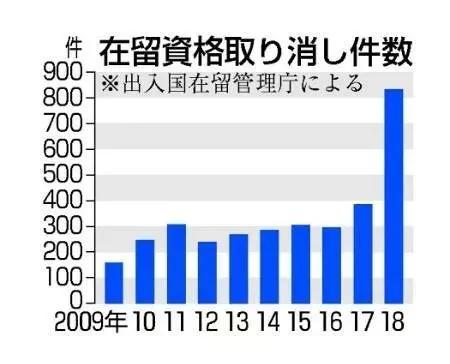
Changes in the number of cancelled foreigners’ status of residence over the years
Japan has always paid attention to cracking down on illegally stranded foreigners. Many foreigners have been cancelled their residency qualifications and are unwilling to return to their home countries and stay in Japan for a long time.
Japan is considering creating a new “crime of compulsory deportation violation” and imposing penalties for foreigners who do not obey the repatriation sanctions.
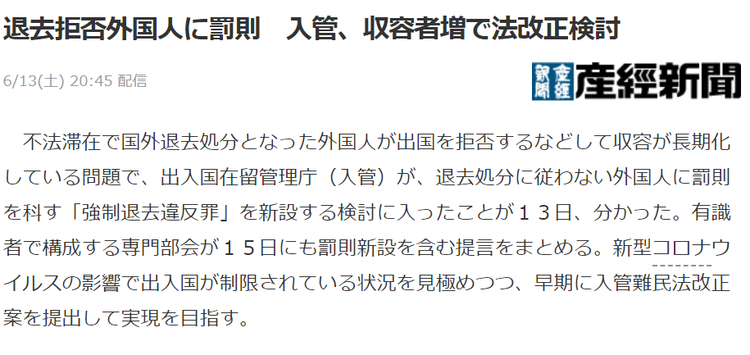
News report
Japan’s attitude towards foreigners is rather contradictory.
On the one hand, Japan needs foreigners.
As Japan’s “aging” and “fewer births” problems continue to deepen, the problem of labor shortage has seriously affected the development of the Japanese economy.
In fact, Japan cannot do without foreigners. In addition, the Japanese government plans to accept up to 345,000 foreign workers in five years from 2019 to make up for the labor gap.
On the other hand, Japan treats foreigners cautiously.
Japan has not liberalized its country and immigration policy because of labor shortages. Many Japanese politicians and media are firmly opposed to accepting immigrants.
Although Japan allows foreign labor to enter Japan for a short period of time, it is very cautious in its permanent immigration policy.
The reason is also very simple. Labor shortage is a problem. Immigrants may solve the problem, or it may be counterproductive.
If the threshold is not set, the mud and sand will be reduced, and the quality of immigrants will be low, which will cause new problems.
04
Chinese people’s mind
Rumors like “Japan drove out half a million blacks” will appear in China, and what lies behind it is the Chinese emotions.
Make up stories about the Japanese and talk about the Chinese people’s mind.
Especially in recent times, black American protests have given Chinese people a new understanding and feelings about immigrants.
Maybe one day, China will have to bring in foreign immigrants, but not now.
There are still 1.4 billion hardworking people in China today.
Rather than considering how to introduce foreign immigrants, it is better to think about how to stimulate the Chinese people’s own energy.
Maybe one day, there are many foreign immigrants in China, but we must avoid “mass deportation of immigrants”.
As the saying goes, it’s easier to ask God to give it away.
This requires us to be strict and strict in our immigration policy, rather than indiscriminately, and never refuse to come.